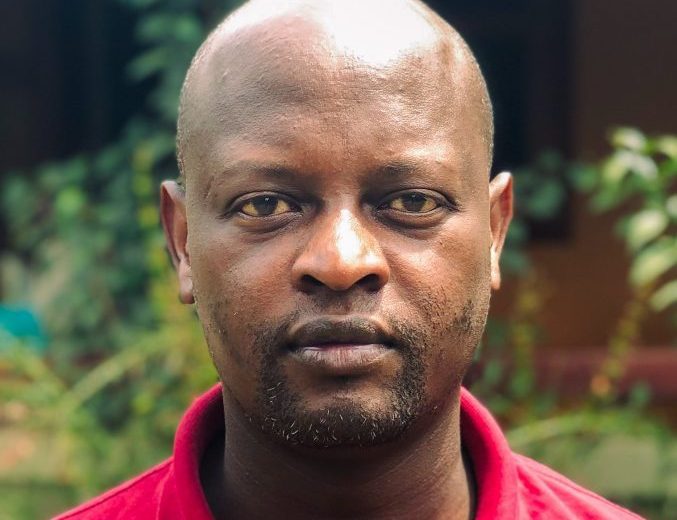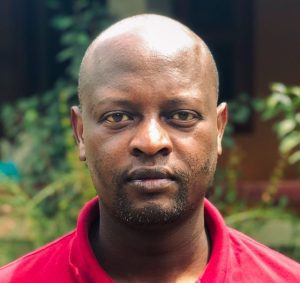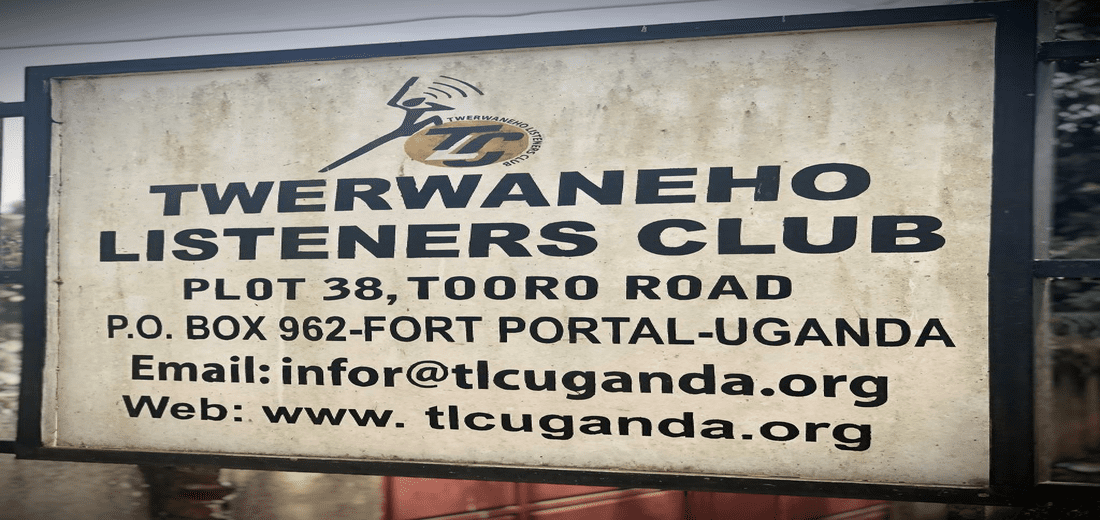
Fed up of seeing more and more human rights violations in the Ugandan city of Fort Portal, local human rights activists formed an organization, spoke out against the regime’s actions in radio programs, and defended the oppressed in court – without ever losing a case. Gerald Kankya, team leader of the Twerwaneho Listeners’ Club, tells their story so far.
Fort Portal City is located in Western Uganda, approximately 296 kilometers by road from Kampala, Uganda’s capital and largest city. It was nicknamed the ‘Tourism City of Uganda’ due to its strategic location in the heart of major tourist sites including the snowcapped mountains of the moon, commonly known as the Rwenzori Mountains, boosts of over 20 crater lakes, and the Kibaale natural forest which is home to over 400 species of birds, other animals, and flora.
The existence of these tourism sites led to tremendous developments socially and economically. However, some of these developments proved detrimental to the local communities as was manifested in the unlawful evictions that gained prominence.
In 2006, a group of local human rights activists started a radio talk show ‘Twerwaneho’, loosely translated as ‘Let’s struggle for ourselves from the Rutooro dialect, a language spoken by the indigenous people of the sub-region. The talk show was broadcast on local radios; Voice of Tooro and Life FM and it was aimed at awakening people to debate on issues of governance and rights. This talk show would turn over time out to be a safe haven for the different communities battling unlawful evictions and other human rights-related issues.
Today, we feature Mr. Gerald Kankya, the team leader at Twerwaneho Listeners Club. He has been at the organization right from its inception and up to where it is at the moment.

What is Twerwaneho Listeners Club?
“We are a human rights organization that started as a small group of activists who would go on radio and talk about human rights issues, accountability, and the right to land. Our work mainly focused on land rights because at the time that was a major challenge and the Tooro Kingdom was the major perpetrator of the right to land. So, the radio talk show mainly targeted the Tooro Kingdom as the main perpetrator and we were running a sensitization program that was intended to protect and empower communities to fight against unlawful land grabbing”.
“Along the way, the management of the radio station started receiving a lot of pressure from the Kingdom and other authorities to suspend the radio programs. This did not deter the proprietor from hosting the programs. As a result, the radio was attacked and the radio transmitter was burnt down by armed military men”.This was some form of punishment against hosting or broadcasting programs that were not regarded positively in light of the kingdom authorities and other government officials”.
“A few months later the radio station went back on air and we castigated the act of burning the radio station which resulted in the arrests of the panelists. The arrest meant that even people who were meant to speak for the voiceless were targeted and this was the only front the communities were using to defend themselves against unlawful evictions”.
“The programs had also gained a lot of listenership. Following the arrest and a rigorous court process that lasted for about 18 months where the panelists were charged with inciting violence, threatening violence, and defamation, the listeners resolved to form a club that would unite the listeners and the panelists. This was the birth of Twerwaneho Listeners Club.”
So, what is the nature of your interventions?
“When we started, we looked at general human rights issues because it was less like an activists’ group that was not that professional but along the way, we integrated into the radio program and the aspect of the provision of legal support because within our team we had members with different specialties; we had lawyers, journalists, and social scientists, to mention but a few. So, we kept on evolving until recently when we decided to focus mainly on supporting human rights activists, communities that are harmed by investment projects, and communities facing unlawful evictions”.
“Currently, we also monitor foreign development finance projects by the World Bank, African Development, and other investment projects, both public and private. We also provide probono legal services for walk-in clients, carry out strategic litigation for the benefit of wider communities. Luckily, we have never lost a case in which we have represented communities.”
What are some of your most recent interventions?
“We currently have about 5 cases that include the take away of the salt lake by the Chinese Consortium, communities affected by the Fort Portal-Kasese Highway, communities evicted by the Uganda Wildlife Authority, and another pending case at the Court of Appeal of Uganda where about 20 crater lakes were leased to a private company. At the same time, we are monitoring 5 foreign-financed investment projects by the World Bank and the African Development Bank. Because our work involves communities, this implies that we must walk side by side with the communities to find local solutions. We do this by partnering with communities, a facilitation role, or aiding support.”
“Communities have resources that must automatically be used through this process. In all the communities we work in, the members provide willingly particular resources like real cash, labor, coordinating communities, serving documents, collecting signatures, to mention but a few. We would really spend a lot of money if we did some of these activities ourselves.Communities have actually started realizing that our organization is not there to solve problems but to partner with them and find solutions to their problems; the communities already know what they want to achieve and we only facilitate them through the process.”
What is your strategy as an organisation?
“Ideally, if you’re working in communities involving over 100,000 people; you must agree on the approach, have clear objectives, declare and know the resources needed, and all the parties involved must know their roles. That way, you eliminate the risk of misunderstanding and suspicion. By doing this you are trying to localize the intervention to be a community initiative and in a way that is sustainable because through that process, communities gain some capacities that are used to address possible similar challenges in the future.”
“They acquire basic understanding, knowledge, networks, and connections to seek support in the future. This approach has enabled us to achieve most of our targets. Looking at the aspect of resources, we have a small budget as an organization but we have huge projects we are working on with the communities and hence the resources within the communities greatly supplement our limited budget.”
Why did you adopt the community-led approach?
“One of the observations I have made is that any person given an opportunity can understand their situation and identify a solution. If you come up with a solution simply because you’re an expert and take the same to a community, it’s an external solution. You will not have the support and commitment of the people.”

“You can test the commitment of a community basing how much they are involved in your project. For example, in all the projects we engage in, the communities finance a particular portion of the budget.Our donors have actually noticed that the output and impact of our work is quite huge in comparison to the resources available to us. We are able to achieve this by directly involving the communities because they see the value in the money that they provide so they continue rendering support.”
How do you build broad support for human rights at the community level?
“Our engagements are more like collective hunting; you go hunting, find an animal, slaughter, and skin it together. Everyone is at least learning something through the process. It’s some kind of empowerment. For example, we worked together with a community that had been evicted from around the 20 crater lakes. Communities walked with us throughout the journey and today the most civically active and legally empowered communities are those around these crater lakes. These crater lakes are attractive to the hospitality business as well as being rich in minerals. Communities are now getting into community agreements with the investors with regards to how they are going to continue using these lake and the resources.”
“These community agreements spell out how the investors are to share access to the crater. We are not involved at any point, we only review. This is a trend that reflects an empowered community as a result of a court process that was undertaken and the communities learned a lot from it. We also do community sensitizations through a radio station. It’s through those sensitizations that we are able to amplify the voices of these communities and also solicit support for the affected communities.”
What message does the recent attack on human rights activists by government agencies send to laypersons at the community level?
“We had an old man with whom we worked on the crater lakes project. He was targeted due to his activism and shot at by military men and consequently had his leg amputated as a result of the gunshot wound. One of the signs that your message is being heard and that you’re very effective is sometimes the negative response you attract. Popular Ugandan novelist Kakwenza Rukirabashaija was targeted because he said something very sensitive. He was consequently arrested and tortured before he fled into exile. However scary this is, our empowered community members cannot afford to be silenced by such cowardly acts. Actually, when you see such cowardly acts being committed, it shows that it’s the right moment to push harder.”
“My understanding with the communities that we work with is that, whereas we understand that there are risks that can even lead to death, we must be able to have strategies to make sure that we increase the pressure and identify the key pressure points that will bring about the desired change. Otherwise, if you succumb to intimidation then you’re done. At Twerwaneho Listeners Club we started with several arrests and harassment but we remained resilient. So, it’s better to use the available knowledge and ideas to be clever but also brave enough to address community challenges.”
What’s the nature of your relationship with foreign donors?
“Donors are not the same. Many come with specific objectives and want you to support their implementation. However, two of our major donors are quite understanding that they let us set our goals and objectives. This has enabled us to build our capacities and also strengthen our systems and ways of engaging with our target communities. Our interventions are not like paper drafted and done, there are many processes involved that call for flexibility and understanding if you want to provide genuine interventions. For the Global North to have effective interventions in the Global South, they must think about the power dynamics, not from the money point of view but looking at who they want to benefit from and how the person is going to receive the said project.”
“The local communities know the solutions to their challenges better and hence should be involved at all times while designing projects meant for their benefit.”
Any other major challenges in your community engagements?
“We have an overwhelming number of community requests for support. We would like to attend to them all but we are constrained by the limited resources much as some of the communities finance parts of our budget. Also, other aspects like human resources have to be found elsewhere and hence affecting our level of intervention.”
“From the community’s point of view, we have had so many instances of reprisals and retaliation. We have tried to grapple with this and offer further support to the communities but risks can never be eliminated completely. We strive to empower and prepare them to understand these risks.”

Leave a Reply